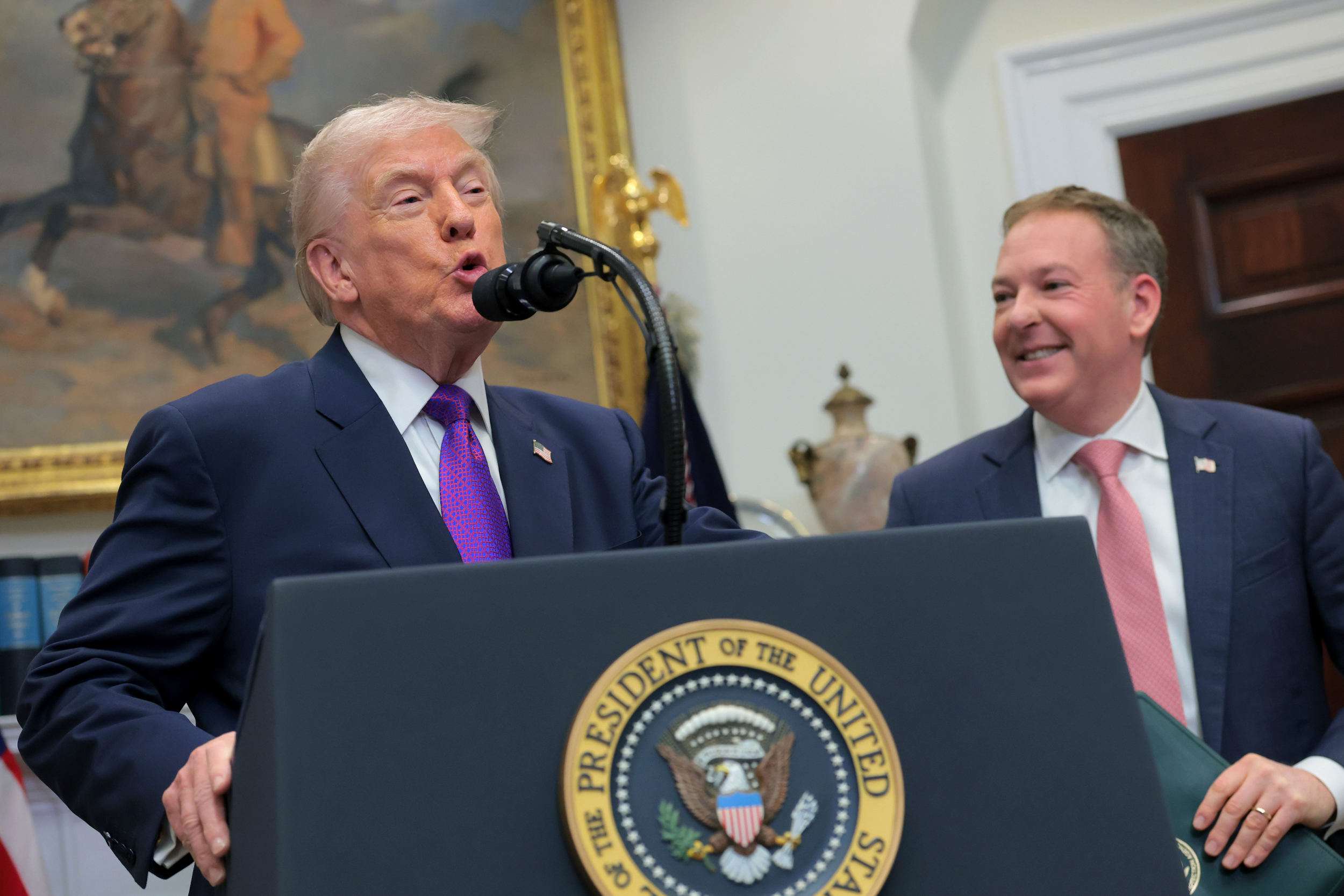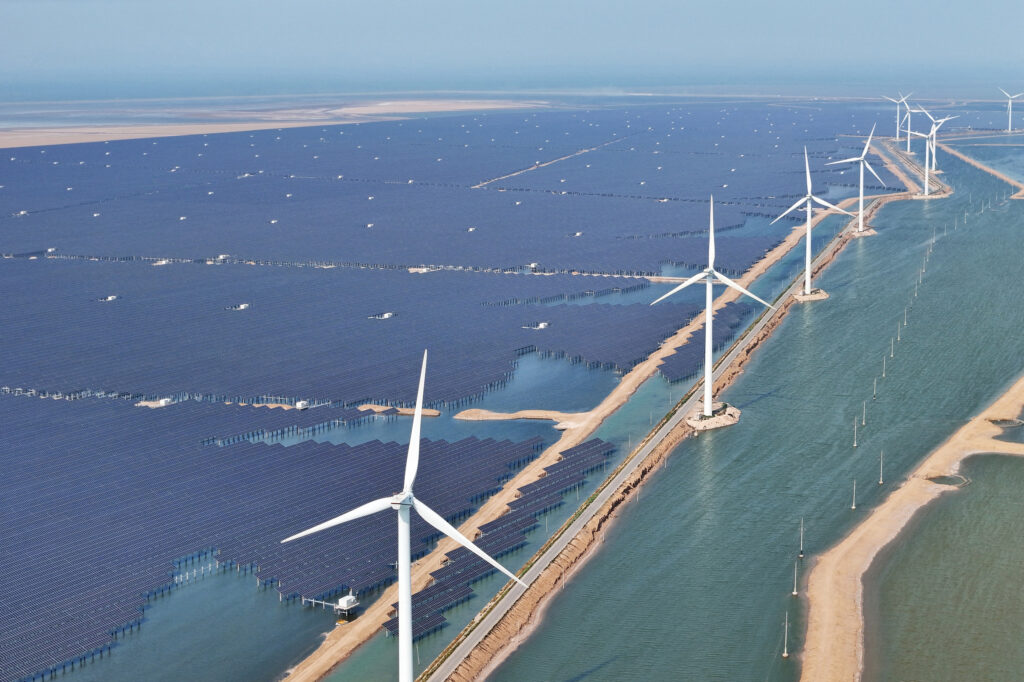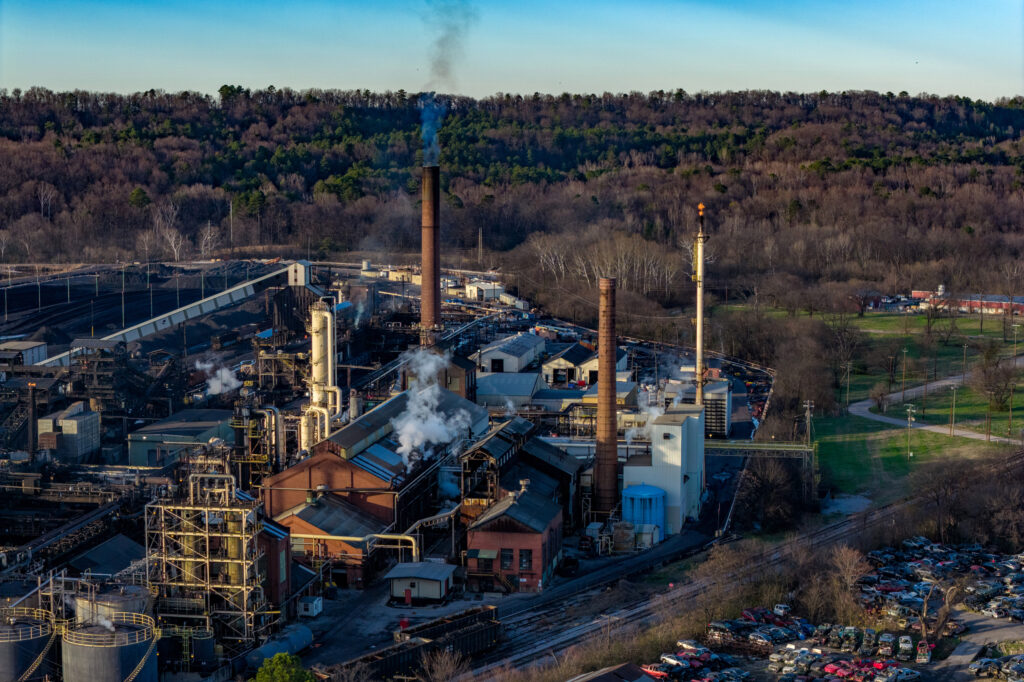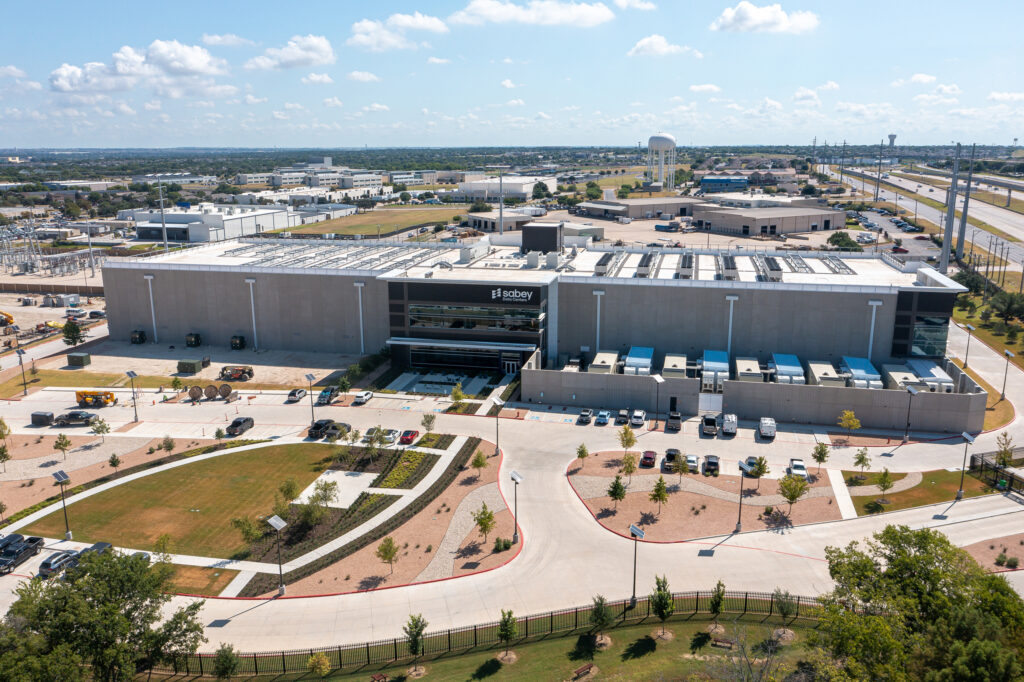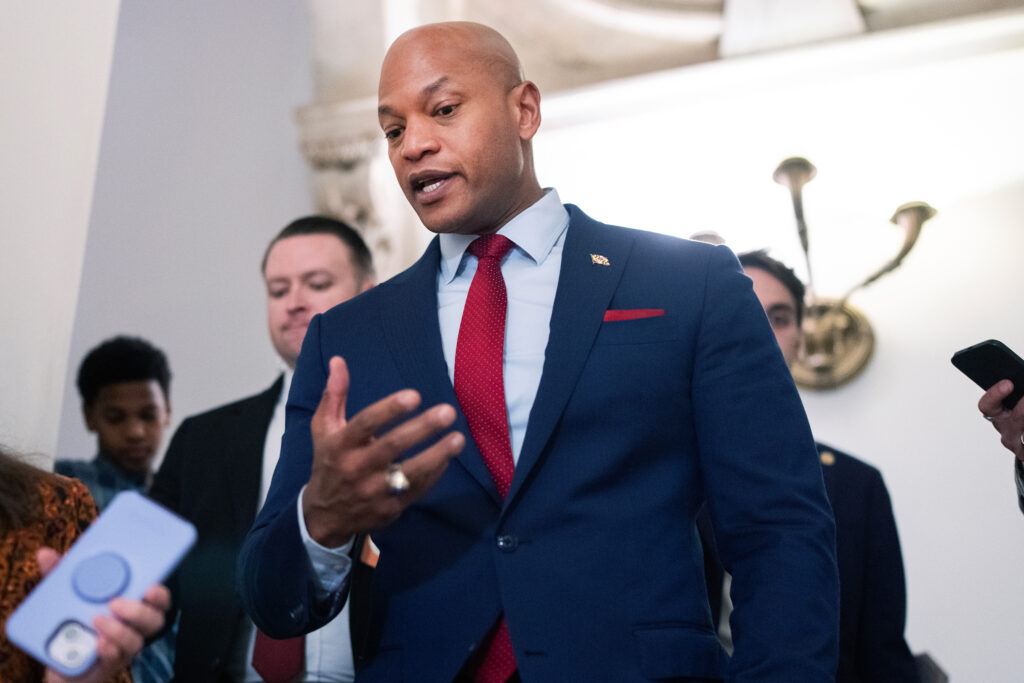From our collaborating partner “Living on Earth,” public radio’s environmental news magazine, aninterview by managing producer Jenni Doering with Monique Harden of the Deep South Center for Environmental Justice.
The attempts of Black communities in Cancer Alley to seek justice for environmental racism are being met with pushback.
In 2022, local environmental justice groups sought help from the Environmental Protection Agency under part of the Civil Rights Act known as Title VI. They said that by approving so many industrial facilities in majority Black districts, the Louisiana Department of Environmental Quality had engaged in racial discrimination. The EPA opened a civil rights investigation and hopes were high that justice would come.
But then state Attorney General Jeff Landry, who is now Louisiana’s governor, sued EPA, alleging that its bid to address longstanding environmental racism was itself a form of “reverse discrimination.” Because of that lawsuit, the Department of Justice got involved, and EPA dropped its civil rights investigation in Cancer Alley, shattering the hopes of environmental justice advocates.
The attacks on Title VI of the Civil Rights Act have since spread beyond Cancer Alley. In April, Republican attorneys general in nearly two dozen states argued EPA should no longer consider race alongside pollution risks.
Monique Harden is director of law and policy and manager of the community engagement program at the Deep South Center for Environmental Justice in New Orleans. This interview has been edited for length and clarity.
Explore the latest news about what’s at stake for the climate during this election season.
JENNI DOERING: So what is Title VI? And what does it have to do with environmental health?
MONIQUE HARDEN: Title VI is the Civil Rights Act of the United States. It’s a federal law. This is a law that was a tremendous achievement by the Civil Rights Movement, through the decades following Jim Crow, that really ushered us into a new place where we get closer to democracy and equal protection under the law in the United States.
What Title VI of the Civil Rights Act of 1964 sets forth is a prohibition of the use of federal dollars by any entity that would result in the discrimination of people on the basis of race, color, national origin.
DOERING: How has Title VI been used in relation to environmental justice?
HARDEN: It’s been used to enforce environmental justice. Many of our state environmental agencies are mostly funded with federal dollars. That obliges each of those state agencies that are responsible for permitting pollution, monitoring it and enforcing regulations to ensure that all of their actions and activities are not discriminatory.
What we know to be a fact is that discrimination is happening across the country, where you have these extreme disparities in communities that are disproportionately burdened with toxic pollution, that disproportionately is based on race. Black communities are more likely than white communities to have a toxic facility operating or spewing pollution where we live.
The state agencies, while they’re looking at environmental laws, also have an obligation, as anyone else who receives federal dollars, to look at civil rights laws and protections. Some states have been really hostile in attacking those civil rights protections; one of those states being where I live, in Louisiana.
DOERING: Could you walk me through these recent challenges to the Civil Rights Act and Title VI and where they stand?
HARDEN: A little bit of history: The earliest Title VI civil rights complaint that was filed by communities seeking environmental justice was in 1989. Since then, there’s been this large backlog of civil rights complaints that have been filed with the U.S. Environmental Protection Agency. This is a federal agency that has the obligation to ensure that dollars that flow through that agency to states or localities are not used in a way that discriminates on the basis of race.


Those complaints were not being reviewed, investigated, brought to resolution by the EPA, which was and continues to be a major issue and concern for environmental justice advocates like myself and the Deep South Center for Environmental Justice. However, recently, the Environmental Protection Agency under the Biden-Harris administration accepted two civil rights complaints that were filed in St. John [the Baptist] Parish and St. James Parish, communities located in Louisiana’s Cancer Alley.
Their complaints charged discrimination on the part of our Louisiana Department of Environmental Quality and our Louisiana Department of Health and Hospitals. EPA took both of those complaints up under one investigation and began the work of resolving the decisions—a pattern of actions and decisions by each of those agencies—and got them to the table to make agreements for real transformative change that would remedy the situation. This document was a near-final settlement agreement between the communities and the state agencies.
One of the terms of this agreement would have required the Louisiana Department of Environmental Quality to withhold permitting for any polluting facility that would lead to racial discrimination.
DOERING: So there’s almost a settlement agreement. What happens next?
HARDEN: Just before signatures were written on the document, our attorney general at the time for Louisiana, Jeff Landry, brought a lawsuit in a federal court that is on the other side of the state from where St. John Parish and St. James Parish are located. He was able to find a judge who would agree and has a record of an ideology with decisions. That really put the stop on the Department of Justice moving forward.
EPA was working within its administrative capacity to bring these civil rights complaints to resolution. Once the lawsuit was filed—just heinous arguments, ridiculous biases, but nonetheless, it was filed by the attorney general of Louisiana—the Department of Justice held back and didn’t fight back against it to defend the work that EPA was doing, which is ultimately upholding Title VI of the Civil Rights Act for communities in St. John Parish and St. James Parish, Black communities facing discrimination by state governments funded by the federal government.
[It was a] major disappointment within the environmental justice community that the Department of Justice is not as serious as it should be about upholding our laws when it comes to ending racial discrimination.
This story is funded by readers like you.
Our nonprofit newsroom provides award-winning climate coverage free of charge and advertising. We rely on donations from readers like you to keep going. Please donate now to support our work.
Donate Now
DOERING: How do you respond to Jeff Landry’s claim that it’s actually racist for EPA to consider the race of impacted communities?
HARDEN: The way in which you respond is by enforcing what the law says, which is that there’s a prohibition against racial discrimination. That forces analysis of racial impacts. This “colorblind” patina he wants to put on to use as a cloak to cover actual structural racism really has no sway with anyone.
Just taking a walk in Louisiana’s Cancer Alley, it becomes really clear: Black residents in modest homes, in the shadows of towering industrial facilities spewing toxic poison in their air and dumping it in their waterways. It’s not reverse discrimination to end racial discrimination. The argument is specious, it holds no weight or water. The Department of Justice really failed, I believe, in meeting this moment with a vigorous defense of civil rights of the residents in St. John and St. James Parish that they so deserve.
DOERING: We’ve heard about high levels of ethylene oxide in Cancer Alley, which is home to a lot of Black communities that already face a lot of industrial pollution. What do you think this weakening of Title VI that’s ongoing means for communities like that?
HARDEN: The ethylene oxide regulations that EPA announced in the spring of this year reduce the emissions considerably. It’s a major step forward that regulatory action is still a place where change and progress can be made. But I would look at ethylene oxide as one of many chemicals that can be released in Black and other communities of color by not just one but several industrial facilities that are all otherwise permitted to operate.
While the reductions on ethylene oxide are important, and it shows a way for additional cuts that can be made in pollution by regulation, there’s still this civil rights question that needs to be addressed, which is, where is our Department of Justice in preventing the violations of Title VI of the Civil Rights Act when it comes to toxic pollution and environmental hazards?
DOERING: The challenges to Title VI have spread to many other states as well, with other attorney generals raising questions about Title VI. Why are they pursuing this weakening? And what do they have to gain from it?
HARDEN: Part of it is this political ideology that wants to do away with all racial equality in the country and stand up and bring reinforcements to white supremacy. Another part of it is working at the behest of large industrial polluters that are making massive profits where they’re not required to clean up or reduce their pollution. Those two dynamics are at play here with the attorneys general who are hostile to EPA meeting its obligation as a federal agency to prevent civil rights violations.
DOERING: What can communities do in the face of these challenges to the Civil Rights Act, and to Title VI?
HARDEN: There’s more collective action and power building that’s needed. Not as many people as you would think understand the important role that Title VI of the Civil Rights Act has. So there’s an education piece that’s needed and with that education, informing collective action for robust enforcement of it. That’s really our work ahead.
We’ve got now a blueprint of what’s possible that can change Cancer Alley in Louisiana. What is this blueprint? It was the near-final settlement agreement that EPA was able to develop with state agencies who didn’t want the removal of federal dollars, because that’s the ultimate remedy of Title VI of the Civil Rights Act. If an entity receiving federal dollars doesn’t want to comply with the law, that entity is no longer funded with federal dollars. It impacts every aspect of our daily lives.
Hi, and thanks for reading Inside Climate News. We hope you liked this article. While you were here, you may have noticed something that sets us apart from many other news outlets: our news is free to read.
That’s because Inside Climate News is a 501c3 nonprofit organization. We do not charge a subscription fee, lock our news behind a paywall, or clutter our website with ads. Instead, we give our news freely to you and to anyone who wants to learn about what’s happening to the climate.
We also share our news freely with scores of other media organizations around the country that can’t afford environmental journalism. We’ve built bureaus from coast to coast to get quality news to everyone who needs it. We collaborate, partner, and share.
Since day one, reader donations have funded every aspect of what we do. We opened our doors in 2007, and just six years later, earned a Pulitzer Prize for National Reporting. Now we run the oldest and largest dedicated climate newsroom in the country. We hold polluters accountable, expose environmental injustice, debunk misinformation, and inspire action.
It’s all possible because of readers like you. Today we’re asking you to invest in this work, our newsroom, and our continued growth. Help us keep reporting on the biggest crisis facing our planet and reach even more readers in more places. With your support, we can tell stories like the one you just read – stories that change hearts and minds and have seminal and enduring impact. Because of you, they’ll remain free for everyone, everywhere.
Please chip in now with whatever amount you can afford. It takes just a moment to give, and every gift makes a difference.
Thank you,







